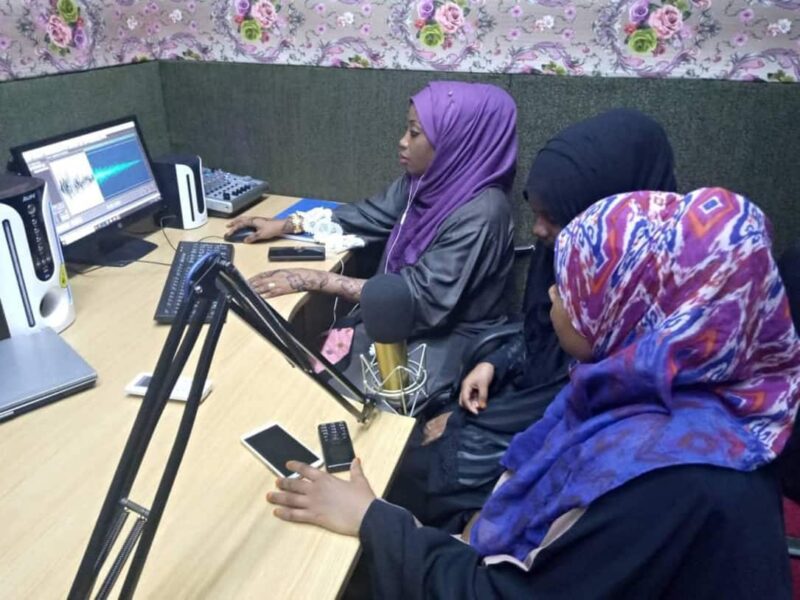The participants in a six-week intensive practical radio journalism training are stamping their presence on the Tanzanian media landscape.
Already some of the students who started with little or no knowledge of radio production have skills that have seen them win awards and secure employment.
The six-week practical training on how to produce quality radio programs was conducted by Internews at St. Augustine University of Tanzania (SAUT) based in Mwanza, University of Dar es Salaam’s School of Journalism and Mass communication (SJMC) in Dar es Salaam, and Zanzibar Journalism and Mass Media College (ZJMMC).
Dotto Bulendu, a lecturer at SAUT and one of the trainers, described the program as a tough test.
“From the very beginning of the training, it was obvious we needed to exert maximum effort in supervision and practical training to enable all – from certificate and diploma holders to degree level students – to get up to speed in gathering and editing audio content,” says Dotto.
He says for him the outcome has been exceptional. His trainees surprised him with a demo tape of a PSA video drama they are working on that addresses the burning issues of human rights and gender-based violence.
Students too have noted and appreciated the skills they learned. Omary Seleman Mwiru, a SAUT third year student, in a note of appreciation says: “What I was taught in University is very different from the training that I have received from the Internews trainers. I now realize that there are a lot of challenges in the media in Tanzania.”
He is one of the 341 students who for six weeks received the hands-on training with a team of qualified trainers as part of a USAID-funded program on how to produce quality radio programs.
At SJMC, students trained by Anna Mwasyoke have established a news and current affairs radio program called Kabrasha la Wiki (Weekly File) which went on air at the beginning of November on the station owned by the University – Mlimani Radio FM. Their long-term plan is to create a production house and sell content to various media houses.
“Not just on radio and TV, these students understand the digital world and are using their skills by investing in digital storytelling and reaping the rewards with employment,” said trainer Ali Sultan.
Following completion of the six-week training, two students, Amani Dawai and Amanda Nemes have secured jobs at Dar 24, a popular blog in Tanzania. Another student, Jonathan Kasilo, has established his own blog called CaptainJoh Media, serving as an outlet of news and other vital information related to public interest, music and entertainment.
Trainer Abishagi Christopher also had great news to share from among her students. “Nazareth Joseph Upete, who was working on a part-time basis at Mwanza-based Jembe FM radio hosting a sports magazine program, now has a full-time job,” she said. “On submitting to the program manager his certificate and the feature story he produced during the practical training, he was promoted to the production department.”
In Zanzibar some of the trainees not only got jobs but awards as well. “Bakari Masoud, one of the trainees, now working for Chuchu FM, received an award from the Zanzibar Tourism Commission for producing a good tourism program,” said Kudra Mawazo a trainer at ZJMMC.
Newly set up ZJMMC radio station has taken ten of the trained students as volunteers to produce programs, says Kudra, adding, “They have asked me to continue mentoring them.”
Many of the trainees have maintained contact with their trainers and in this way receive mentorship and share their scripts for review, building up their skills in radio production.
Internews’ activities in Tanzania are funded by USAID.
(Banner photo: Trainees in the ZIMMC radio studio. Credit: Internews)
